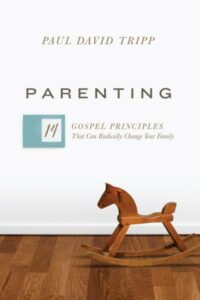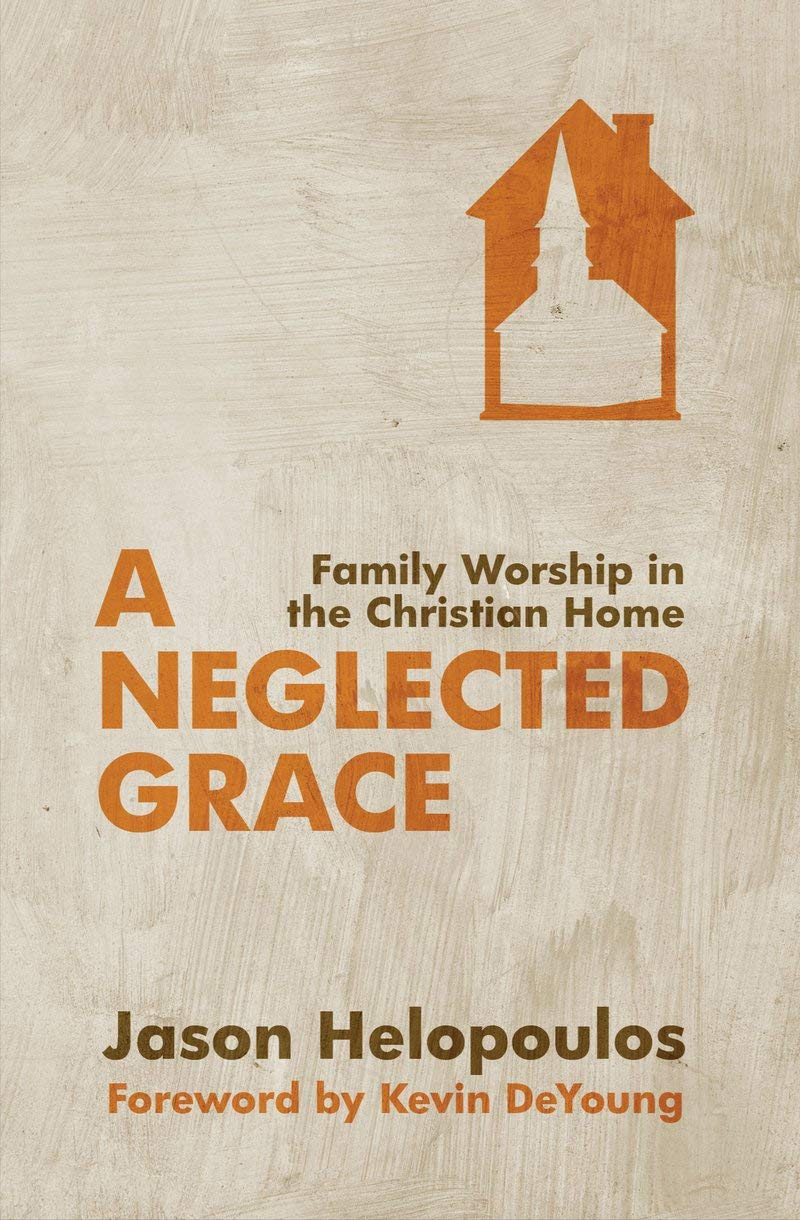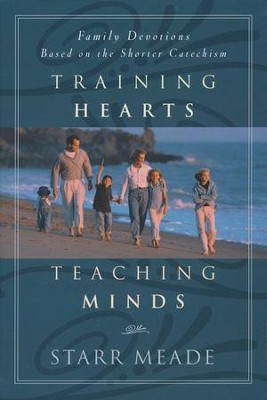Perhaps the reader of these pages, is by this time, if not before, convinced of the great importance of the duty we have endeavoured to exhibit and of the obligation there is upon him, punctually and faithfully to discharge it. But there may arise in his mind particular difficulties, which hinder him from following the dictates of his judgment and his conscience. If the mind be thoroughly persuaded that the duty of family religion is of as great moment as we have represented it to be, it will be difficult to satisfy the conscience with any objection, short of an impossibility to perform it. Perhaps the same excuses, if urged with equal plausibility, in extenuation of neglect in matters unconnected with religion, would not receive a moment’s countenance, even from those who justify themselves in the omission of the duty in question, on the same grounds. Sometimes, while justly condemning others, we at the same time unconsciously condemn ourselves. The heart being ‘deceitful above all things,’ we may nor be surprised that ‘All the ways of a man are clean in his own eyes.’ Prov. 16:2. ‘Every way of a man is right in his own eyes.’ Prov. 21:2. Hence we find that men are apt to justify their own conduct, and condemn that of another as inexcusable, while the principle involved is the same in both, and the conduct of both equally sinful in the sight of God, who ‘pondereth the heart.’
1. The first objection we shall notice, is the want of time, properly and statedly to perform this duty.
It may be safely taken for granted, that there can not be conflicting duties. That which an undoubted duty renders impossible to be done, can not itself be duty. This would suppose derangement in the government and plans of God, which is wholly inadmissible. If, then, family worship be an obvious duty, we can not be warranted in occupying the time in which it should be performed, in doing any thing else. If it be a duty at all, it must also be a duty to employ some time in performing it, and it can not be our duty to employ this time in doing something else. Whatever we do, therefore, when we should be attending to family devotion, is sinfully done, and in direct opposition to the will of God; and to plead the one as an excuse for the neglect of the other, is to plead one sin in extenuation of another. The time which should be employed in serving God, is his time, and not ours. When he demands a service, he also demands the necessary time for its performance. This is evident. Now if that time be otherwise employed, it is withholding from God that which is his due. It is robbing God of what rightfully belongs to him. If your servant should neglect to perform the service for which you have bargained with him, and plead the want of time as his excuse, what would be your reply? Would it not be—’in bargaining for your service, I bargained for all the time that the service requires; and to appropriate that time to your own or other purposes, is to deprive me of what is my legal and rightful due?’ If this would be your reply, as I apprehend it would be, then you have furnished an answer to your own objection. On what ground do you presume upon success in any business, that is transacted at the expense of God’s rights? Should you prosper in life, notwithstanding this disregard of his claim, may you not justly conclude that he is permitting you to fill up the cup of your iniquity, and that he has deferred the settlement of his account with you, to the day of righteous retribution? May not your success in worldly gain, be regarded as a fearful premonition of coming vengeance? You may have, as many others have, your portion in this life. What an awful thought! What a still more awful reality!!
If the business in which you are engaged, be an unlawful calling, how greatly aggravated is the guilt of occupying God’s time in prosecuting it! Men, generally, are not sufficiently impressed with a sense of their entire dependence on God; for success in their worldly affairs. They acknowledge it as a theoretic truth, but are not habitually influenced by the belief of it. ‘Except God build the. house, they labour in vain that build it.’ Ps. 127:1. Men are also slow to credit that important declaration of Scripture, ‘Godliness is profitable unto all things, having promise of the life that now is, and of that which is to come.’ They do not practically believe the promise annexed to the injunction; ‘seek first the kingdom of God and his righteousness, AND ALL THESE THINGS SHALL BE ADDED UNTO YOU.’ This objection is not unlike that which Judas made to Mary’s anointing the head and feet of Christ with precious ointment. He thought it might be otherwise employed to greater advantage. But Christ said, ‘wheresoever this gospel shall be preached in the whole world, there shall also this, that this woman hath done, be told for a memorial of her.’ This objection asks, ‘to what purpose is this waste’ of time? Judas, indeed, in making the objection, professed great solicitude for the poor, to whose relief he supposed the price of the ointment might be more piously applied. But here the objector supposes that the time required for family devotion, might be otherwise employed to his own advantage or even should he propose to employ that time in acts of charity, or in acquiring means of benevolent relief to the needy, still it may be asked, does God require you to do good by neglecting duty, or to do evil that good may come of it?· Does he require you to do his will in one respect, by disregarding it in another? Certainly not. Let the objector examine carefully and prayerfully, his own heart, and he will find that the difficulty is a want of disposition, not a want of time.
2. Another objection sometimes urged against the discharge of the duty of family worship, is INCAPACITY to lead the devotions of others. .But even if this difficulty really exist, is it insurmountable? Have you ever laboured to overcome it? Have you ever ventured to make trial of your capacity in this respect?
‘Have you no words?—Ah! think again;
Words flow apace, when you complain,
And fill your fellow-creature’s ear
With the sad tale of all your care.
Were half the breath thus vainly spent,
To heaven in supplication sent,
Your cheerful songs would oft’ner be,
‘Hear what the Lord has done for me.’’
If you have never made the attempt, you can not decide upon your ability, and therefore you can not offer the excuse with all sincerity. This duty, like all others, should be undertaken in the strength of God, and not in your own; with a firm reliance upon Divine assistance, and not with presumption or self-sufficiency. In your attempt, you may be unexpectedly assisted, and ‘the strength of God be perfected in your weakness.’ Until you shall have made a fair trial, therefore, you can not be justified ill your neglect, on the ground of incapacity. Where the spirit of prayer is granted, the gift is not usually withheld; and although it be given in small measure, yet by practice it may be so cultivated as to be employed to the edification of those whom you are called to lead to a throne of grace. It is quite certain that no improvement in this respect, can result from total or habitual neglect. Where no effort is made to obviate the difficulty, we can not expect that it will be obviated by a miracle. If, however, after an honest and persevering endeavour to conduct the worship of your family, you should be persuaded that your efforts to do so with advantage, are unavailing, still you are not left to the sad alternative of neglecting the duty. There are admirable forms of family prayer, in print, and accessible even by those of the most restricted means. Such forms may be used, where there is evident incapacity for extemporaneous prayer, with perfect propriety and great advantage. These are designed, not as permanent substitutes for extemporaneous prayer, but as aids which may be used, till practice shall have enabled you to do without them.
Those who would rather live in the neglect of this duty, than avail themselves of such useful helps, plainly show that the difficulty with them, is not a want of capacity, but a want of disposition.
3. Another difficulty which some profess to feel, is a want of confidence and moral courage. They are ashamed to introduce into their families, a service so religious in its character, and one which both implies and requires so much attention and concern in serious matters. I have no doubt that this objection is often honestly made. This, moreover, is sometimes the real difficulty, while others are professed. But while we admire the honesty of the confession, we can by no means approve the state of heart which it discovers. It exhibits the fear of man as predominant over the fear of God. It is not the wrath of man, that is at all times most dreaded: for his ridicule and scorn have often more influence than his threatenings. And many permit themselves to be laughed out of their most precious interests, even the salvation of their souls. Both their interest and duty give way before the pointed finger of scorn, the taunts and jeers of scoffers, and the curted lip of the contemptuous. This always manifests a great weakness of moral principle, and little or no sense of religious obligation. Such appear not to know, or to forget, that ‘He that sitteth in the heavens shall laugh; the Lord shall have them in derision,’ Ps. 2:1. ‘I also will laugh at your calamity; I will mock when your fear cometh,’ Prov. 1:26.
What blindness, what depravity, what contempt of the Most High, does it discover, when men are ashamed of God and of his service!
‘Jesus! and shall it ever be,
A mortal man ashamed of thee!
Ashamed of thee, whom angels praise,
Whose glories shine thro’ endless days.
Ashamed of Jesus! yes, I may—
When I’ve no guilt to wash away—
No tear to wipe—no good to crave—
No fear to quell—no soul to save.’
‘No! let the world cast out my name
And vile account me if they will;
If to confess the Lord be shame,
I purpose to be viler still.’
‘Whosoever shall be ashamed of me,’ says Christ, ‘and of my words, in this adulterous and sinful generation, of him also shall the Son of Man be ashamed, when he cometh in the glory of his Father, with the holy angels,’ Mark, 8:38. Christ is not ashamed to call his followers brethren, nor is God ashamed to be called their God. Heb. 2:11; 11:16. But ‘let them be ashamed that transgress without cause,’ Ps. 25:8.
If you be ashamed to perform this duty, perhaps God has determined that this particular service shall be the touchstone, by which your love and faith shall be tried and determined. Pause and consider, then; before you longer neglect the duty on this ground.
4. It may happen that a female, who is the sole head of a family, will object to the observance of family worship on that account. But if the providence of God has cast her lot in circumstances which devolve this duty naturally on her, she is unquestionably bound to perform it. If God has placed you at the head of a family, he has not relieved you from the duties which belong to that station. The injunction to bring up your children in the nurture and admonition of the Lord, is to parents, both male and female.
5. Where the wife is disposed to the service, but the husband is unwilling, there both a duty and a trial are imposed upon her. They should not ‘fall out by the way,’ for ‘the wrath of man worketh not the righteousness of God.’ ‘For God hath called us to peace.’ But she should endeavour to win over her husband to the path of duty, by reasoning with him, in kindness and affection. And if he will not be won, she may retire with her children and servants, in a way the most inoffensive to her partner, and there lead them in prayer to God, in behalf of the whole family. ‘For what knowest thou, O wife, whether thou shalt save thy husband? or how knowest thou, O man, whether thou shalt save thy wife.’ 1 Cor. 7:16.
If you have resolved like Joshua, that as for you and your house, you will serve the Lord, never omit this duty, if it can possibly be performed. Frequent, and even occasional omissions weaken the sense of obligation, and prepare the way for habitual neglect. ‘Be instant in season, and out of season.’ If visitors should lodge under your roof, let not their presence deter you from duty, nor interfere with the religious customs of your house. This would impose a restraint upon them, if they knew it; and would imply one of two things, either that you were glad of an opportunity to omit the duty, or that their presence was in some degree unwelcome, as it deprives you of a valuable privilege. But those who enjoy your hospitality, surely would not object to your enjoyment of your religion. Nay, it would leave on their minds an unfavourable impression, in regard to your piety, and your sense of religious obligation. Even should they be secretly indisposed to the service, they will expect better things of you, and naturally look for consistency of character and conduct. But this is not all: the service may be blessed to their salvation. The reading of the Scriptures, and the prayer you offer; may become, by the grace of the Holy Spirit, effectual to their regeneration. And those who come to your house, strangers to God, and without Christ, may leave it rejoicing in the hope of eternal life, or at least with such impressions, as may ripen into true godliness. While, therefore, you will lose much by omitting the duty, you may gain much, even an immortal soul, by faithfully performing it.
The reader may infer from this whole subject, the vast importance, and indispensable necessity of true piety in the heads of families: not only for the sake of their own salvation, but of those committed to their care. For it may be generally said of parents, as it was of Achan, if they perish, they perish not alone.
In the view of that great responsibility which rests upon parents, and of the variety, and peculiar nature of the duties devolving upon them, how essential is the grace of God properly to meet, and faithfully to discharge them! Unless the importance of religion be duly appreciated, and sensibly felt by the head of the family, he will not urge it upon his children and servants, with that earnestness and importunity which the case demands. And the necessity of an interest in Christ, will not be pressed with that unwearied diligence, with that heartfelt solicitude, and prayerful affection, which are so necessary to success. Let parents lay these things to heart; and may they and theirs be saved in the day of the Lord Jesus!
Footnotes:
[1] Saurin, Vol. 2. p. 25.[2] Anderson’s Book for Parents, p. 317.
[3] Anderson’s Book for Parents, p. 322, 323.
[4] Anderson’s Book for Parents, p. 84.
[5] Anderson’s Book for Parents. p. 88.
[6] Hall’s Works, Vol. iii. p. 135.

















